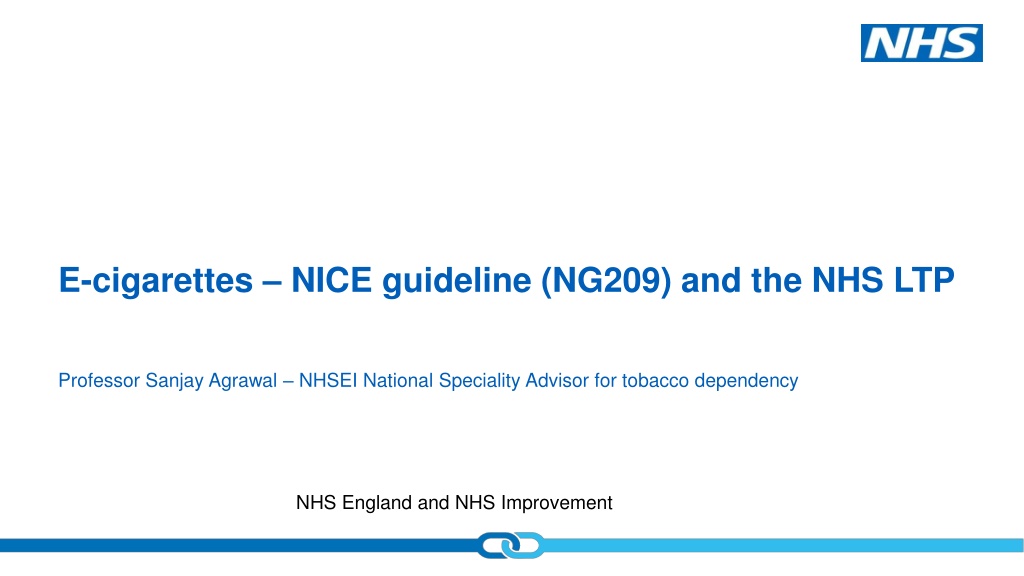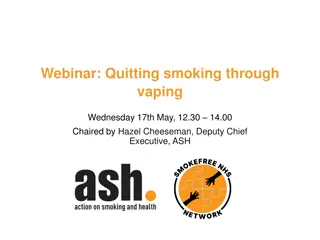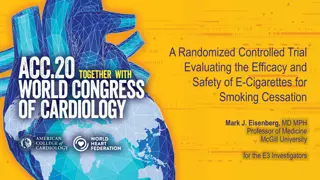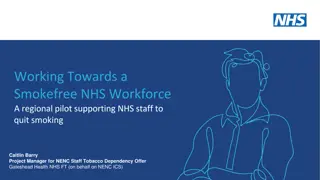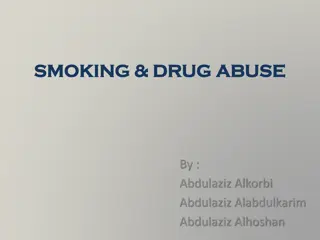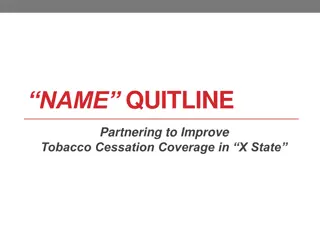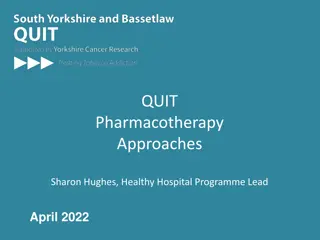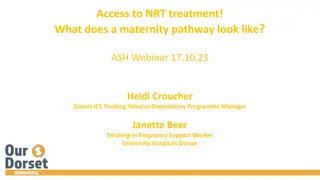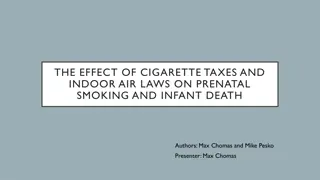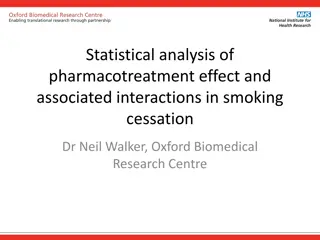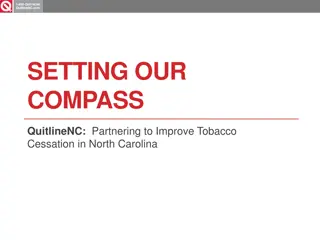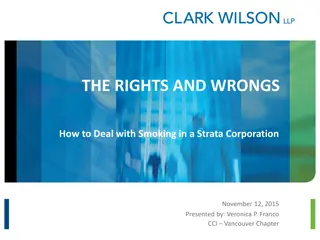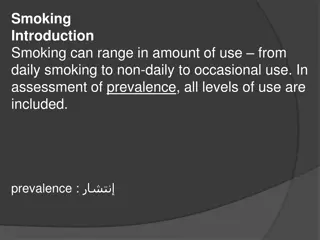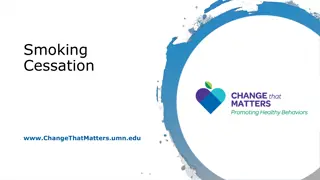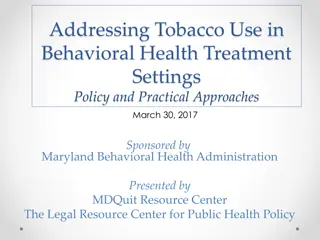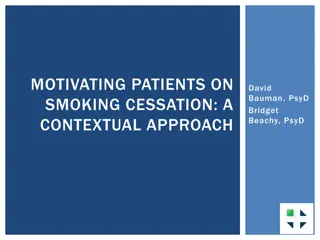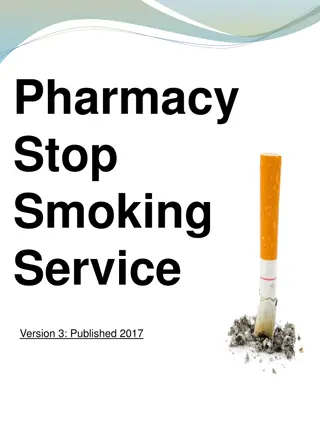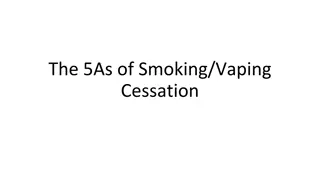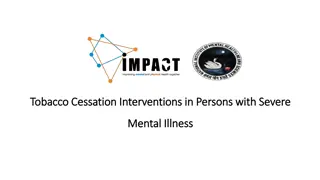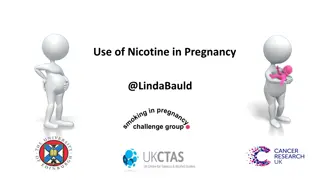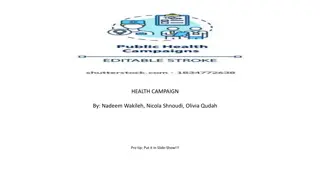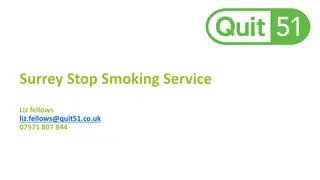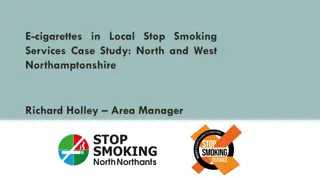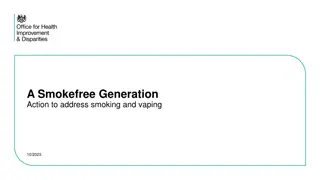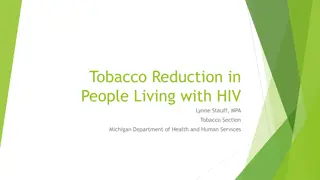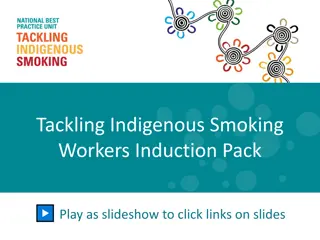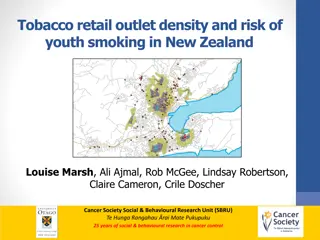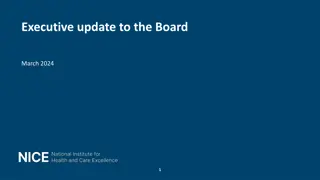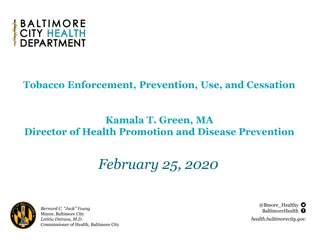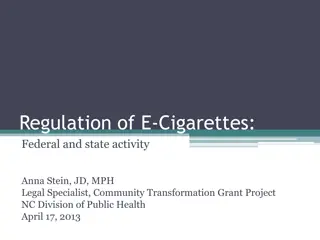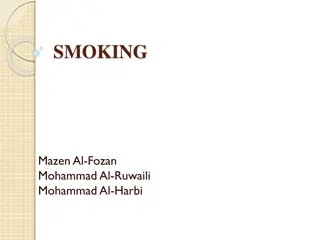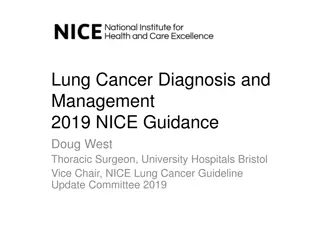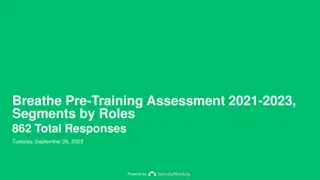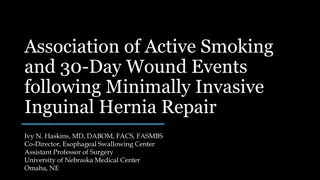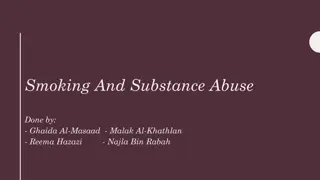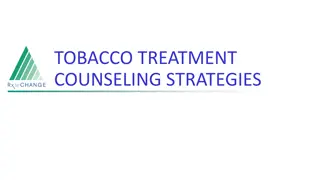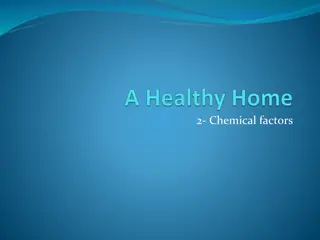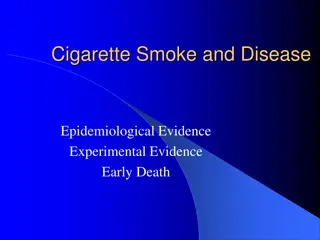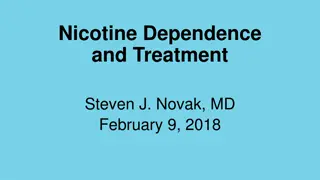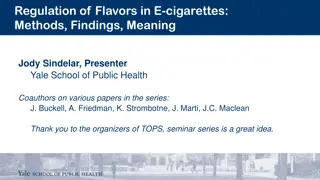Guidance on E-cigarettes in Smoking Cessation Programs by NICE and NHS LTP
The NICE guidelines (NG209) and NHS Long Term Plan emphasize the availability of various interventions to help individuals quit smoking, including behavioral support, medication like varenicline and nicotine replacement therapy, and nicotine-containing e-cigarettes. It is advised to provide clear and updated information on e-cigarettes, discuss their use and potential harms, monitor for side effects, and ensure sufficient nicotine intake for managing withdrawal symptoms. Regulation of e-cigarettes is governed by specific regulations, and currently, there are no medically licensed e-cigarette products. The NHS Long Term Plan aims to implement tobacco dependence treatment programs, including screening all patients for smoking and providing opt-out referrals for inpatients.
Download Presentation

Please find below an Image/Link to download the presentation.
The content on the website is provided AS IS for your information and personal use only. It may not be sold, licensed, or shared on other websites without obtaining consent from the author. Download presentation by click this link. If you encounter any issues during the download, it is possible that the publisher has removed the file from their server.
E N D
Presentation Transcript
E-cigarettes NICE guideline (NG209) and the NHS LTP Professor Sanjay Agrawal NHSEI National Speciality Advisor for tobacco dependency NHS England and NHS Improvement
NICE (NG209) NICE (NG209) 1.12.1 Tell people who smoke that a range of interventions is available to help them stop smoking. Explain how to access them and refer people to stop-smoking support if appropriate. [2021] 1.12.2 Ensure the following are accessible to adults who smoke: behavioral interventions: behavioral support (individual and group) very brief advice medicinally licensed products: bupropion nicotine replacement therapy short and long acting varenicline nicotine-containing e-cigarettes 2 |
NICE (NG209) NICE (NG209) 1.12.7 Advise people that the following options, when combined with behavioural support, are more likely to result in them successfully stopping smoking: varenicline a combination of short-acting and long-acting NRT nicotine-containing e-cigarettes 3 |
NICE (NG209) NICE (NG209) Advice on nicotine-containing e-cigarettes 1.12.13 Give clear, consistent and up-to-date information about nicotine-containing e-cigarettes to adults who are interested in using them to stop smoking [2021] 1.12.14 Advise adults how to use nicotine-containing e-cigarettes. This includes explaining that: e-cigarettes are not licensed medicines but are regulated by the Tobacco and Related Products Regulations (2016) there is not enough evidence to know whether there are long-term harms from e-cigarette use use of e-cigarettes is likely to be substantially less harmful than smoking any smoking is harmful, so people using e-cigarettes should stop smoking tobacco completely. [2021] 1.12.15 Discuss: how long the person intends to use nicotine-containing e-cigarettes focusing them for long enough to prevent a return to smoking and how to stop using them when they are ready to do so. [2021] 1.12.16 Ask adults using nicotine-containing e-cigarettes about any side effects or safety concerns that they may experience. Report these to the MHRA Yellow Card scheme, and let people know they can report side effects directly. [2021] 1.12.17 Explain to adults who choose to use nicotine-containing e-cigarettes the importance of getting enough nicotine to overcome withdrawal symptoms, and explain how to get enough nicotine. [2021] 4 |
Regulation of e-cigarettes Nicotine containing e-cig s Non-nicotine containing e-cig s Tobacco and related products regulation (2016) General product safety regulation (2005) No MHRA medically licenced e-cigarette product yet cannot be prescribed currently 5 |
NHS LTP Tobacco dependence treatment programme (by 2023-24) Hospital based services Screen ALL patients for smoking Acute hospital inpatients Opt-out referral to in-house Tobacco Dependence Advisers Mental health hospital inpatients Treat tobacco dependence: in-house services, referral to LA smoking cessation services, community pharmacy involvement Pregnant women (and partners) who smoke Report outcomes Identify (MH trust, community, GP) Expanding beyond People with Severe Mental Illness (community) Opt out treatment (MH trust, LG SSS, pharmacy) Report outcomes hospital Identify (Primary & secondary care, community, ambulance) lower SES groups Offer treatment (Hospital trust, SSS, pharmacy, digital) NHS staff who smoke Report outcomes 6 | 6 |
Treatment pathway Treatment pathway 1 3 5 7 Admitted Smoking recorded electronically With automated opt-out referral to in-house * TDA App t with ** LG SSS set-up prior to discharge NRT on discharge meds On-going pharmacotherapy & 12 weeks of behavioural support from ** LG SSS 2 4 6 8 4-week quit recorded & reported Screened for smoking & dual NRT prescribed Discharge home Bedside TDA consultation * *Local government stop smoking service or community pharmacist * TDA = tobacco dependency advisor 7 |
NHS LTP Delivery Model NHS LTP Delivery Model Mental Health Mental Health 8 | https://future.nhs.uk/NHSpp/view?objectId=121515749
Common themes Local procurement & supply ( e-voucher, vape shops, local government stop smoking services) Local practice and pathways - NHS/ local government services/ community pharmacies Hospital smokefree grounds policies Risk from chargers 9 | 9 |
